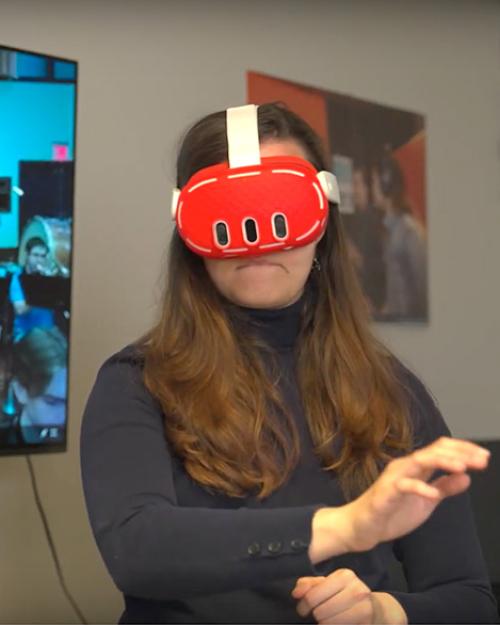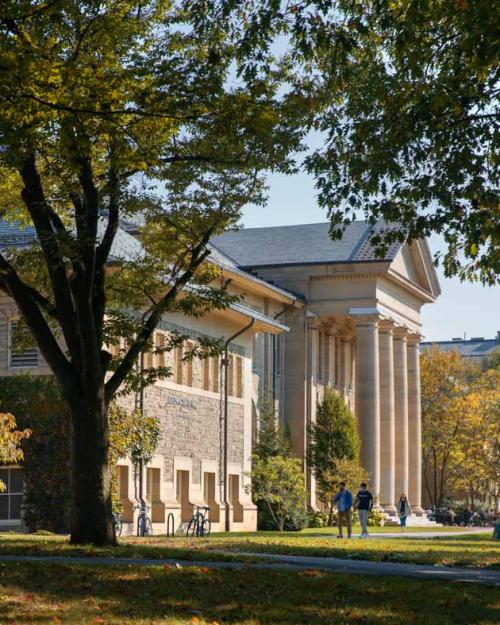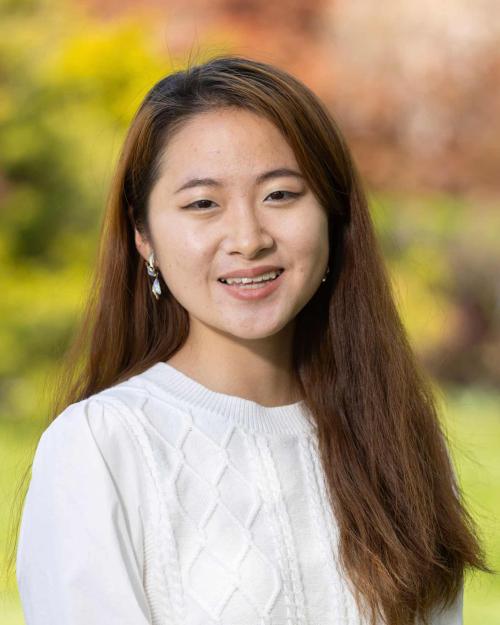Zhenghui Zhang
Mathematics
China
What was your favorite class and why?
There are many classes I have taken that are truly inspirational, and it is tough to say which one is my favorite. However, I do think MATH 3360 Applicable Algebra, taught by Prof. Marcelo Aguiar, greatly impacted my thinking about mathematics. It is the first proof-based mathematics class I took at Cornell, and Prof. Aguiar demonstrated how to derive rich, intricate mathematical theorems in algebra from clear, simple definitions. In the class, deduction was the nutrition that fertilized the growth of mathematical ideas, and I often found myself shocked to realize how far we have gone, given how little we started with. Moreover, the class has the perpetual power to reassure and energize me whenever I get stuck in research math: I will think back about how we do proofs in MATH 3360, calm myself down, restart thinking, and end up proving something! By reshaping my understanding of math, the class's influence is truly everlasting.
What is your main extracurricular activity and why is it important to you?
While during semesters I devote myself primarily to math, during breaks I tend to push myself out of my bubble by traveling to different countries. In the past, I have been to Mexico, Peru, the Dominican Republic, Haiti, etc., and it is a fantastic experience to witness different cultures/lifestyles and see gorgeous scenery! I really like traveling to Latin American countries, especially given that my comparative literature minor has helped me understand some of their special historical backgrounds through novels/scholarly texts. Specifically, one novel that I find extremely motivating is "One Hundred Years of Solitude." This is a reading from my comparative literature class, and I can really relate to the plot. By reading Latin American literature and experiencing life there, I can understand social issues inherent in these countries after colonization and have intellectual discussions with my friends by putting myself in a global perspective. I believe traveling/reading can help me see the broader, more complex parts of life that are undetectable/incomprehensible by rationality but are worth understanding through sympathy and love.
What have you accomplished as a Cornell student that you are most proud of?
Since junior year, I have been working on connecting the (co)homology of specific linear quotient spaces with their associated matroids under the supervision of Prof. Ed Swartz. Unlike short-term REU projects, this long-term project shows me the side of research that values resilience and patience. Working on this research is like gradually clearing the mud and finding the scattered gems bit by bit. So far, we have obtained excellent partial results like long exact sequences based on matroid deletion, contraction and computations of rational homologies through characteristic polynomials of dual matroids. Recently, our primary focus has been on computing the cohomology ring structures of certain linear quotients of spheres using equivariant cohomology and Smith's theory. We have a concrete conjecture for the ring structure, which has proven true for certain examples. I hope to continue working on this research project over the summer and potentially prove some nice theorems!
This year, I began working on my senior thesis, which focuses on the ends of spaces and boundaries of groups under the supervision of Prof. Jason Manning. Shape theory, a variant of homotopy theory, can be used to study local ‘bad’ spaces that arise as the boundaries of groups, like the Sierpinski carpet or the Menger cube. I am currently writing my senior thesis, which will show some applications of shape theory in geometric group theory and low-dimensional topology!
What are your plans for next year?
I will attend graduate school and start doing research in topology, an area of mathematics that studies spaces and their shapes. Specifically, I want to understand low-dimensional topology; i.e., 3-dimensional or 4-dimensional spaces. While spaces in dimensions 1, 2, >=5 are somehow well understood by mathematicians, 3 or 4-dimensional spaces, those closest to the space we live in (because the physical world we live in is 3-dimensional and the spacetime is 4-dimensional), are the hardest to comprehend. One of the most famous unsolved conjectures in this area is the 4-dimensional smooth Poincare conjecture, which boils down to understanding whether the 4-dimensional sphere admits an additional differentiable structure. Low-dimensional topology is a very active area of research. I want to contribute to this area in the future, using methods like gauge theory, floer homology and hyperbolic/symplectic techniques.
Every year, our faculty nominate graduating Arts & Sciences students to be featured as part of our Extraordinary Journeys series. Read more about the Class of 2024.




